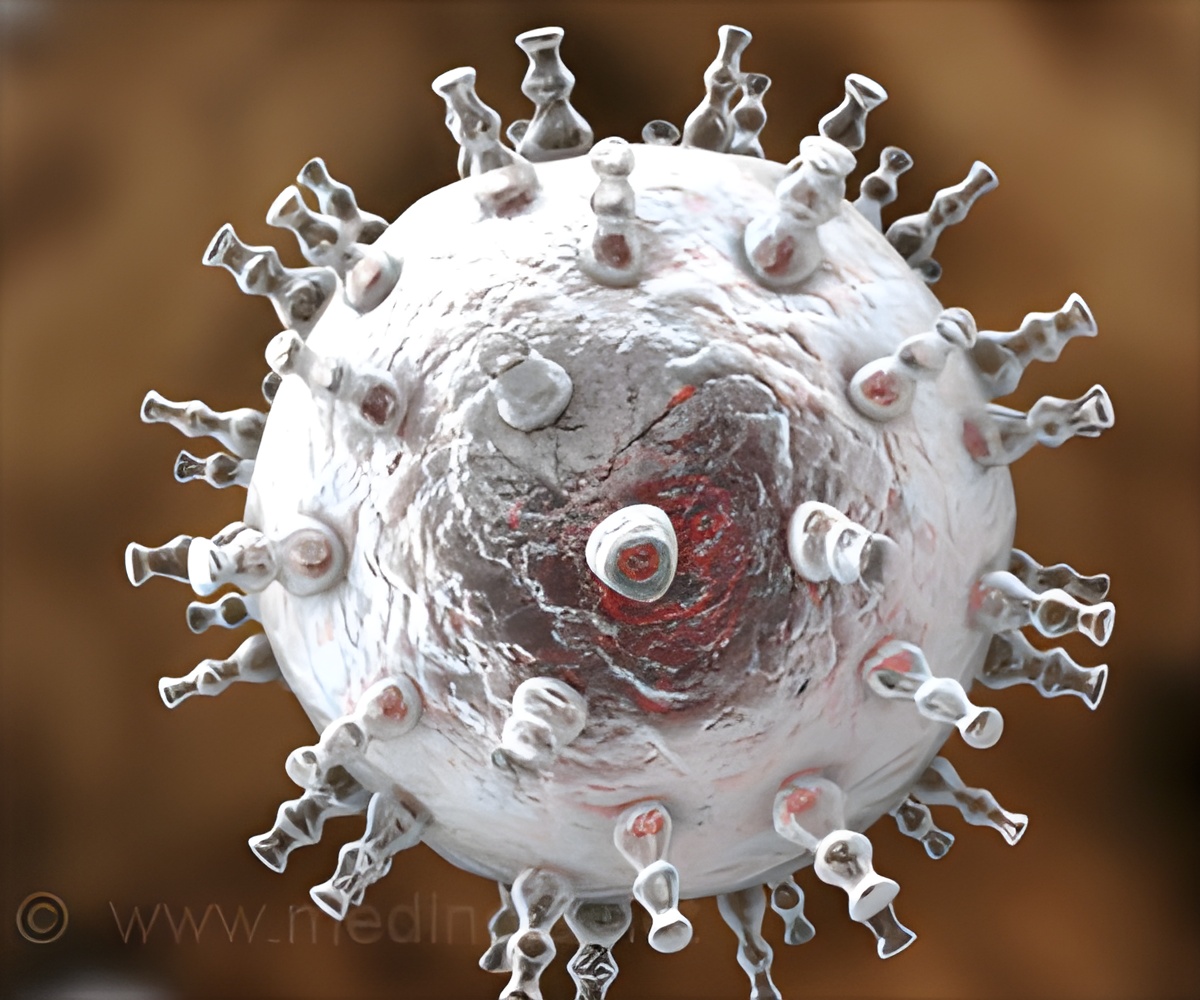
‘Anti-PD-1 therapy in the form of pembrolizumab appears to be safe, and it could be considered for FDA approved indications in HIV patients who are taking anti-HIV treatment and have a CD4 count above a certain threshold.’
Read More..Tweet it Now
The "adverse events profile," a measure of the safety of the drug in the study, was not substantially different from prior studies that excluded such patients. The results, study authors said, are likely applicable to five similar drugs that block receptors known as PD-1 or PD-L1 on the surface T cells.Read More..
"Our conclusion is that anti-PD-1 therapy is appropriate for cancer patients with well-controlled HIV, and that patients with HIV and cancer can be treated with the drug and should be included in future immunotherapy studies," Uldrick said.
The 30-patient trial studied only pembrolizumab, the anti-PD-1 therapy manufactured by Merck. Merck provided the study drug to the National Cancer Institute (NCI). The NCI sponsored the trial. HIV-positive patients with different cancers that might respond to the drug were included in the trial. Among the cancers treated were lung cancer; Kaposi sarcoma, or KS; non-Hodgkin lymphoma; liver cancer; anal cancer and advanced squamous cell skin cancer.
Fred Hutch immunotherapy researcher Dr. Mac Cheever is director of the NCI-funded Cancer Immunotherapy Trials Network, which carried out the trial, and he is senior author of the JAMA Oncology paper. The study was conducted at seven different cancer centers across the United States, including the HIV and AIDS Malignancy Branch of the National Cancer Institute, in Bethesda, Maryland.
Overall, the safety profile of pembrolizumab in people with HIV and cancer was similar to that noted in clinical trials in the general population. Although the primary purpose of the study was to evaluate safety, it also provided a snapshot of the anti-cancer activity of the drug on these patients. One patient with lung cancer had a complete response to treatment, and activity was also noted in important HIV-associated cancers, including non-Hodgkin lymphoma, Kaposi sarcoma and liver cancer.
Advertisement
The researchers concluded that anti-PD-1 therapy may be considered for FDA approved indications in patients with HIV who are on antiretroviral therapy and have a CD4 count above a certain threshold (100 cells per microliter of blood). However, more research is needed as to its effectiveness in the setting of HIV infection.
Advertisement
"Exclusion of people with HIV in clinical trials is a longstanding problem that grew out of the poor outcomes of AIDS patients with cancer, before there were effective antiviral therapies for HIV," Uldrick said. In prior research, Uldrick surveyed 46 recent clinical trials that led to approval of cancer drugs, and found 30 contained explicit exclusions for patients with HIV, and nine others where an exclusion was implied.
This study was sponsored by the National Cancer Institute Cancer Therapy Evaluation Program (CTEP). Study drug was provided to the NCI by Merck Sharp & Dohme Corp., a subsidiary of Merck & Co., Inc., via a collaborative research and development agreement. It was supported by U.S. federal funds from the National Cancer Institute (NCI), National Institutes of Health (NIH), under Contract No.HHSN261200800001E, NIH Intramural Research Program Support ZIA BC011700 to Dr. Uldrick and ZIA BC010885 to Dr. Robert Yarchoan, and 1U01CA154967 to Dr. Cheever for the Cancer Immunotherapy Trials Network.
Dr. Uldrick reported the following disclosures: Merck & Co. during the conduct of the study, and Celgene and Roche outside the submitted work. In addition, Dr. Uldrick had a patent to the NCI and Celgene issued. Dr. Cheever reported the following disclosures: grants from NIH, NCI during the conduct of the study; as well as others from Merck, Horizon, Dendreon and Celldex outside the submitted work.
Source-Eurekalert












